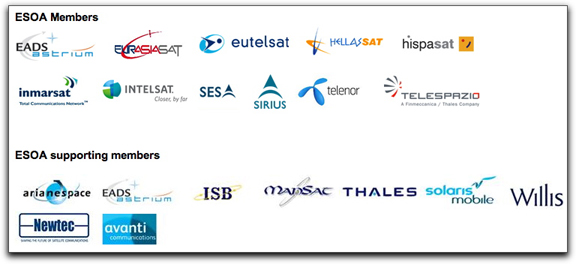Giuliano Berretta said, "Today, a day without satellites means disruptions to trading on the financial markets, no real-time weather forecasts, reduced relief intervention at disaster sites, no GPS synchronisation and limited live TV. This suspension of so many activities puts into perspective the importance of protecting satellite infrastructure and the spectrum needed to operate and expand services of value to citizens. We believe that satellites have sufficiently proven their value for them to be naturally and fully integrated into key policy areas such as digital inclusion, immediate response to disasters and Green ICT approaches."

The workshop also gave other ESOA members including SES, Inmarsat, Paradigm Services (EADS Astrium) and Telespazio the opportunity to expose the high and longstanding levels of cooperation and knowledge-sharing established by satellite companies to preserve the space environment and ensure responsible operations. ESOA Secretary General Aarti Holla-Maini added, "Safety challenges constantly being addressed by satellite operators globally include clearing useful regions by deorbiting satellites at their end of life from geostationary orbit into graveyard orbit, combating interference and limiting space debris". Operators reaffirmed their commitment to initiatives that further improve safety and security, including tighter practices around cybersecurity issues, such as reducing unintended interference and precision identification on the source of jamming, and the development of space traffic management for improved utility of the geostationary orbit.

